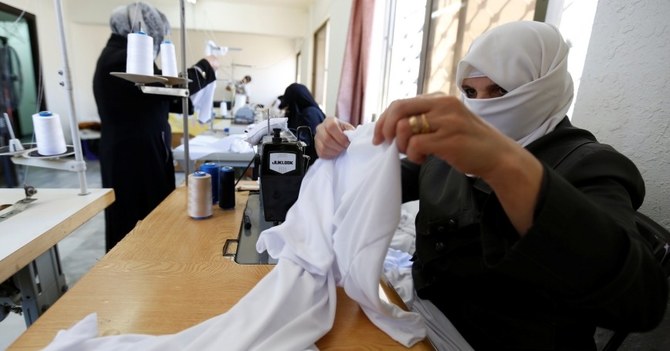Raed Omari
AMMAN: Industrial companies in Jordaa have laid off staff to help cope with accumulated losses as a result of the global pandemic, despite government measures put in place to safeguard jobs, a World Bank report claims.
At the height of the coronavirus outbreak, the government introduced regulations to contain the virus and protect workers affected by nationwide lockdowns that have had a deep impact on the kingdom’s economy.
Under the sixth defense order, which has been in effect since April 2020, companies are unable to lay off employees but, instead, can lower their salaries according to rules outlined by Jordan’s Social Security Corporation.
The SSC also offers incentives to economic sectors classified as the hardest hit by the pandemic under a list that it periodically updates.
Under the regulations, the SSC pays up to 70 percent of employees’ salaries, with the remainder covered by the company. However, firms must have their employees covered under social security and also prove they have been badly affected by coronavirus measures.
Prime Minister Bisher Khasawneh has said that the regulations helped protect at least 100,000 jobs in various sectors.
During a recent meeting with industrialists in the northeastern city of Mafraq, Khasawneh said that the defense orders have ensured business sustainability for affected sectors through a range of lending and incentives opportunities.
Khasawneh stopped short of giving an exact date for the lifting of the regulations, saying only that they will remain in place as a social protection tool.
Some sectors have demanded that they be exempted from the regulations, especially those related to laying off staff.
Arab News learned that international firms working in the kingdom have lodged petitions to the government, asking for permission to lay off employees.
Meanwhile, the World Bank recently said that a survey it carried out on a number of industrial firms in Jordan revealed that half had to lay off all their employees in order to cope with the “massive cash shock” experienced during the pandemic.
According to the bank, 94 percent of Jordan’s industrial companies claimed to have suffered from a liquidity crisis during the pandemic, while 64 percent said that they failed to pay their financial dues to the government and other parties.
The survey was conducted in December last year.
According to economists, lifting the defense orders would increase the unemployment rate, which reached 23.3 percent in 2021.
The government has allocated 20 million Jordanian dinars ($28.2 million) for the Social Security Corporation’s Estidama program, which targets sectors hit hardest by the pandemic.
The relief program, which was launched last year under a defense order, helps affected institutions pay the full wages of workers.
The Jordan national defense law came into force in mid-March 2020 following a royal decree. The law gives the prime minister wide powers to combat the COVID-19 outbreak in the kingdom.






















